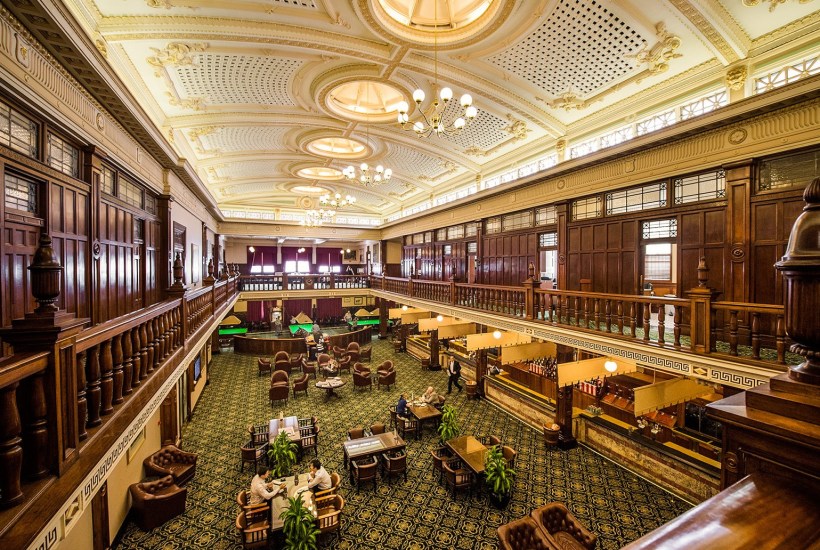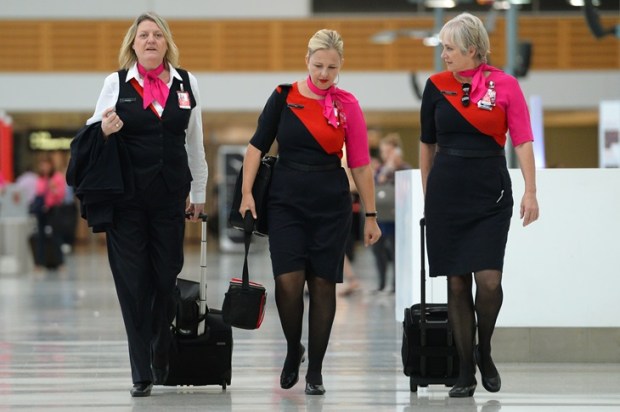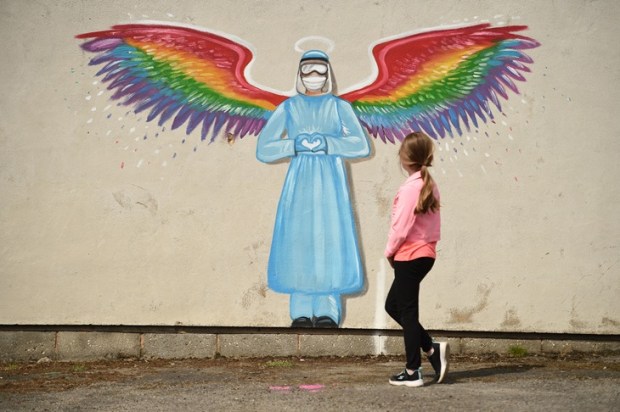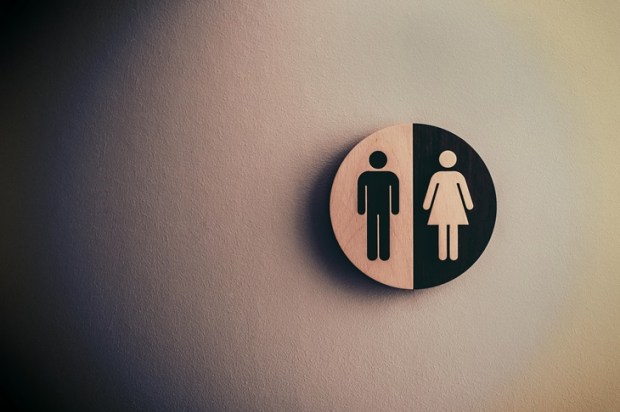“Perfect friendship”, declared Aristotle, “subsists between those who are good and whose similarity consists in their goodness: for these men wish one another’s good in similar ways.” He distinguished this kind of friendship from other, lesser forms, which were based on advantage or pleasure, and which were not as lasting.
Throughout the centuries, other philosophers and commentators have been drawn to the question of what constitutes true friendship, and have arrived at the same conclusions. As CS Lewis wrote: “Friendship arises out of mere companionship when two or more of the companions discover that they have in common some insight or interest or even taste which the others do not share and which, till that moment, each believed to be his own unique treasure (or burden).”
However, Aristotle’s advice seems to have been overlooked by the committee of Brisbane’s famed Tattersalls Club, whose motto, ironically, is that friendship is life. The committee is locked in an increasingly fractious war with its own members over the admission of women to the 153-year-old club.
The committee is pushing rule changes which would allow women to join the club, even though these have been rejected three times by the membership in the last 12 years.
The most recent attempt to force a rule change was commenced in late September, and could best be described as confused and self-contradictory. An email to members of the club from the President, Mr Stuart Fraser, stated: “Tattersall’s has reduced its core debt and is in a strong and enviable position. Now is the time to establish a sustainable operating model while we have the resources to do so.”
The predictable backlash from members has been that, if the club is making a profit, and isn’t broken, then why fix it? This has left a hapless Mr Fraser vacillating between declaring the club’s finances are strong, and claiming that if changes are not made the finances will decline precipitously. Not surprisingly, many members have been unimpressed.
The dissatisfaction was added to by a push poll survey which suggested affordable meal prices in the Members’ Dining Room and excluding women members were mutually exclusive options. A recent and passionate General Meeting saw the vast majority of speakers opposing the Committee’s proposals. Their mood wasn’t helped by a change to the club website that afternoon which proclaimed membership was “open to all” when no change had been made to the rules.
However, last Wednesday events took a distinctly unfriendly turn when the President purported to “stand down” a number of much-loved members who head the Club’s snooker, cycling, and young members subsidiary clubs, and who oppose the proposed rule change.
While the committee has undoubtedly done much to alienate its members, the question is whether the committee or its members are out of touch with the times.
The Committee claims maintaining single-sex membership is costing the club functions revenue from companies which are boycotting it because of its 153-year-old membership rule. Many club members take a contrary view.
At issue is the preponderance of female only clubs within Brisbane’s social and professional circles, and whether women are actually disadvantaged. In response to the committee’s one-sided pushing of female membership, a website has sprung up disputing the committee’s claims. It points out that the number of single-sex clubs is increasing in Brisbane, and that there are 17 for women and only three for men.
In what must be an embarrassing revelation, the most recently formed female only club, Women and Change, is headed by Mr Fraser’s own wife. Men are precluded from joining under its charter.
Other female only clubs include the Lyceum Club and the most exclusive of all Brisbane establishments, the Moreton Club, which occupies a heritage listed sandstone building atop the cliff at New Farm with what it happily describes as “stunning views of the Brisbane River and city skyline.”
All of this is in stark contrast to the growing recognition that an epidemic of male suicides, mental illness, and other male health issues can only be addressed by providing men with the same opportunities to talk and meet securely with other men that we enthusiastically provide to women.
This simply can’t happen as efficaciously, if at all, in mixed environments. As Professor Robin Dunbar of Oxford University notes, friendships between men and women are very different, and there is a “very striking sex difference” between men’s and women’s social groups. While women can maintain strong friendships by talking on the phone, the same is not true for men.
Explaining the results of a landmark study, he said, “Talking [on the phone] had absolutely no effect on boys’ relationships at all. What held up their friendships was doing stuff together. Going to a football match, going to the pub for a drink, playing five a side. They had to make the effort.”
This is borne out by the Research conducted by the Australian Men’s Health Forum, which says that men are much more likely to have mental health coping strategies which do not necessarily involve talking. These include keeping themselves busy, doing something to help another person, and hanging out with like-minded men.
Twenty years ago, the first self-proclaimed Men’s Shed opened in Tongala in Victoria in July 1998, followed by a second at Lane Cove later that year. Their purpose was unashamedly to promote the wellbeing of men and represented a conscious rejection of the idea that only women needed gender-based services.
For Professor Barry Golding, that was a seminal moment. “For many communities, service providers, community workers and governments in Australia, calling a shed in a community setting a Men’s Shed anywhere before 1998 was too hard and contentious.”
There are now over 900 Men’s Sheds, and the movement has spread to New Zealand, Ireland and the United States. These have largely come into being despite an absence of government funding, and their continued existence points to a community awareness of the need for separate social opportunities for men and women.
Jasmin Newman, a counsellor who has worked extensively with men, told me she believes men’s sheds work. “Men’s Sheds demonstrate that men work well therapeutically when they’re working side by side on solutions based outcomes that don’t have to be directly related to the problems that they are facing,” she says.
In her view, if we want to be able to stem the rate of male suicides, we need to be able to offer more spaces where men are free to express themselves as men. This doesn’t mean they are being nefarious; it is just allowing men to meet with other men to talk about their problems.
Tattersalls loyalists point out that this is exactly why their club was established in the first place.
Indeed, it may well be that the club committee’s bumbling and ham-fisted attempts to impose female membership on one of Brisbane’s last remaining men’s only clubs is contrary to the growing zeitgeist that sees providing men and women equal but separate opportunities are the best way to achieve gender equity.
To Jasmin Newman, this is certainly the way of the future. “We have created a suitable number of women’s only clubs, which is a great thing because it allows women to be seen heard and valued by other women,” she says.
“As a woman, I wholeheartedly support the concept of male-only spaces because I know the benefit of such spaces for women, and it is only natural that benefit applies also to men.”
Which leaves the reader to conclude that perhaps it is the committee and not the members of Tattersalls Club who are out of step with the times.
One thing is for sure, any refugees are unlikely to be offered a safe place to land at the Moreton Club, which intends to remain staunchly all female.
Charles Graves is a nom de plume. Sixty-five years ago, the real Charles Graves wrote a celebrated study London gentlemen’s clubs, entitled Leather Armchairs.
Illustration: (ahem) Tattersalls Club.
Got something to add? Join the discussion and comment below.
Got something to add? Join the discussion and comment below.
Get 10 issues for just $10
Subscribe to The Spectator Australia today for the next 10 magazine issues, plus full online access, for just $10.


























Comments
Don't miss out
Join the conversation with other Spectator Australia readers. Subscribe to leave a comment.
SUBSCRIBEAlready a subscriber? Log in